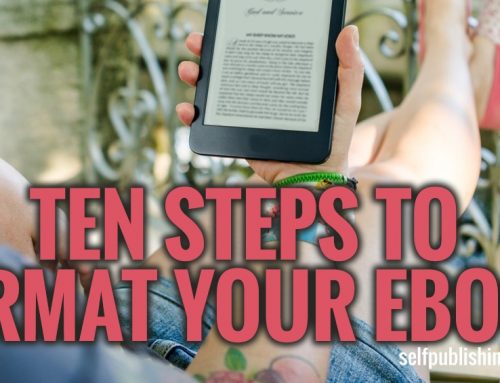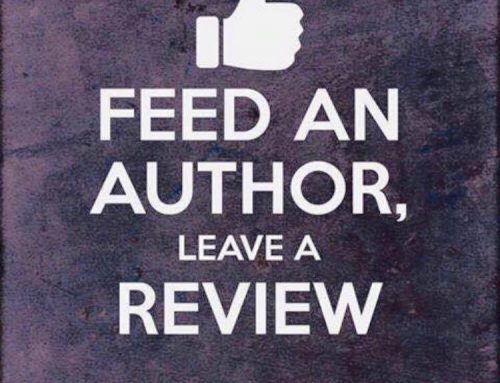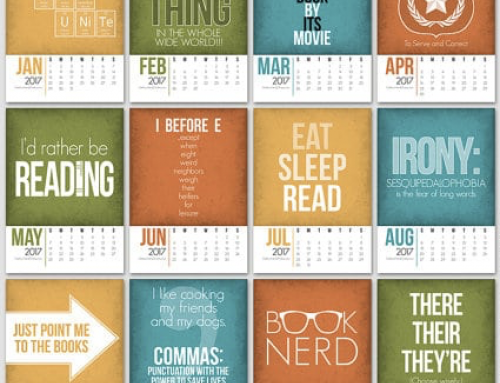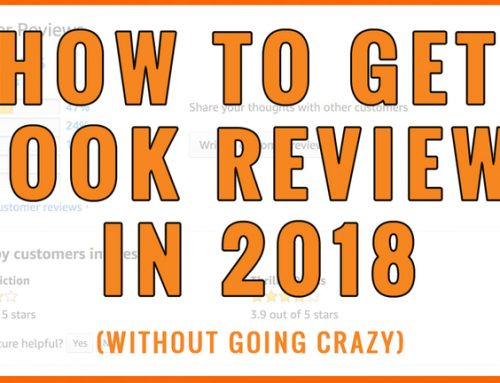
It recently came to my attention that Amazon is aggressively verifying licensing and copyrights for works published through the Kindle DTP Platform.
After taking a leisurely walk around the DTP message boards, it became apparent that Amazon instituted additional verification procedures beginning sometime in September 2009. While this might be upsetting to some who publish through Kindle, I am all in favor of proactive measures to ensure author’s rights are not being violated, so I wanted to talk about what this means for the self-published author.
As the author of intellectual property, the copyright to the work belongs to you. Even if you are traditionally published, you, the author, retain the copyright to your work. However, certain other rights may not remain exclusively with the author, such as publication rights or mechanical and distribution rights, including print rights and digital rights. In most cases, the self-published author will lease or license those rights to printers and distributors such as Lulu, Amazon, or Smashwords, for example. In traditional publishing, the author sells or transfers those rights to their publisher for a term set out in their contract: the rights revert back to the author in the event that the contract ends its term or is terminated for whatever reason.
Most of the rights a self-published author will license are non-exclusive rights to produce copies or reproductions of the work and to sell those copies, rights for which the author has the right to license at will and to terminate at will. Read your contract to be sure you retain control of the rights you are “leasing.” As for Amazon verifying such rights, you might receive a letter, as I did, in your email box that reads:
We are interested in making your title(s) available for customers to purchase in the Kindle Store, but we would like to first confirm that you are certain you are authorized to sell the title(s), and if you are certain that you are, receive documentation from you confirming your authorization. Please reply to title-submission@amazon.com within 10 days, with your confirmation and with appropriate documentation of your e-book rights for your title(s).
Specifically if you are not the author of the title, please confirm that you have all rights necessary to distribute the title in eBook format, and provide any written documentation you have from the author or other copyright owner of the title (such as a contract or other written authorization) which gives you all rights necessary to distribute the title in eBook format, or any other documentation or evidence you have of your copyright ownership (such as a copyright registration number).
If you are the author of the title(s) and you have retained the eBook rights to the title(s), please confirm that you are the author of the title and that you have retained the eBook rights to the title, and provide any documentation or other evidence you may have of your ownership (such as a copyright registration number).
If the title is also published in physical format, and you are affiliated with or otherwise have a relationship with the publisher of the physical book, please explain your relationship with the publisher of the physical book and provide any documentation you may have of your relationship.
Now, as a self-published author who owns their own imprint and retains all rights to the copyrighted work, this was not a difficult matter to address, so my title was held up for publication by a mere 24 hours. In my case, I just pointed Amazon DTP to my Createspace account, which is set up in the exact same manner as my DTP account: under my imprint, which is a legally registered business entity. Registered with my State and Local Government offices, and also registered with Bowkers. In this case, they had no problem verifying that I am indeed the owner of the imprint, the owner of the ISBN, and the Author of the work in question and that the print addition rights were leased by me to Createspace.
As far as documentation, I could have supplied my DBA paperwork and also my copyright registration number should they have required tangible proof beyond what I gave them. And this brings me to the legalities of being a self-published author, specifically: Proof that you own the work.
According to the US Govt. Copyright office: Copyright is secured automatically when the work is created, and a work is “created” when it is fixed in a copy for the first time. “Copies” are material objects from which a work can be read or visually perceived either directly or with the aid of a machine or device, such as books, manuscripts, sheet music, film, videotape, or microfilm and digital copies.
That’s all well and good, but should someone require proof that you own the work, your best option in this matter is to provide your copyright registration number. Back when I registered my work initially, the fee was $45.00, and, if the book was in print, two copies of the book to fulfill the mandatory deposit requirement with the Library of Congress. Now, the Copyright office has gone digital and you can register your work on line for $35.00 and submit your print copies within 30 days as required by law. If your book is in digital format only, you may upload a PDF of the work and be done with it. You will then receive a certification of copyright in the mail with a registration number. You should keep these in a safe place. While it’s not necessary to register the copyright to your work, it protects you in the event you need to sue for copyright infringement, and it also provides a measure of proof should your distribution provider require verification.
So, if you are a self published author and want to avoid a lot of grief should you be asked to verify the rights to your work, do yourself a favor and register. And if you use a vanity publisher or other DIY printing and distribution service, read your contract and be absolutely certain you own all the rights to your work before you take your publication on the road. Just putting a copyright notification on your matter page doesn’t verify a thing.
This information is of course for authors who are citizens of the United States. Copyright laws and filing guidelines can and do vary from country to country, so, if you are not a U.S. citizen, please refer to your particular country’s filing guidelines.
Get an Editorial Review | Get Amazon Sales & Reviews | Get Edited | Get Beta Readers | Enter the SPR Book Awards | Other Marketing Services





















Registration is easy and can be done online now. You can do group registrations over a year’s time to get all of your work on one registration. There is no time limit to register, but to get the current statutory protections, you should do it within 90 days of publication, or as an unpublished work. I have registered hundreds of works. It’s not that complicated and not that hard and you do not need a lawyer to do it for you.
Thanks Francis. Yes, the online registration is very easy and it costs less than the paper way. However, there is a time limit pertaining to infringement cases:
Copyright Registration
In general, copyright registration is a legal formality intended
to make a public record of the basic facts of a particular copyright.
However, registration is not a condition of copyright
protection. Even though registration is not a requirement for
protection, the copyright law provides several inducements
or advantages to encourage copyright owners to make registration.
Among these advantages are the following:
• Registration establishes a public record of the copyright
claim.
• Before an infringement suit may be filed in court, registration
is necessary for works of U. S. origin.
• If made before or within five years of publication, registration
will establish prima facie evidence in court of
the validity of the copyright and of the facts stated in
the certificate.
• If registration is made within three months after publication
of the work or prior to an infringement of the work,
statutory damages and attorney’s fees will be available to
the copyright owner in court actions. Otherwise, only an
award of actual damages and profits is available to the
copyright owner.
• Registration allows the owner of the copyright to record
the registration with the U. S. Customs Service for protection
against the importation of infringing copies. For
additional information, go to the U. S. Customs and
Border Protection website at http://www.cbp.gov/xp/cgov/import.
Click on “Intellectual Property Rights.”
Registration may be made at any time within the life of
the copyright. Unlike the law before 1978, when a work has
been registered in unpublished form, it is not necessary to
make another registration when the work becomes published,
although the copyright owner may register the published
edition, if desired.